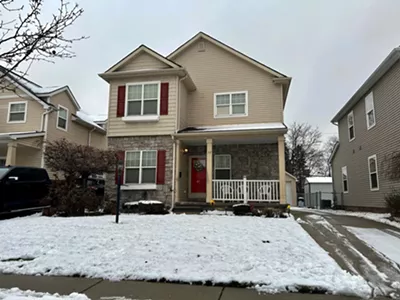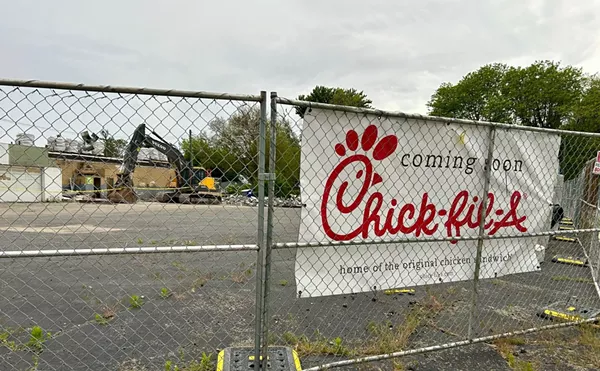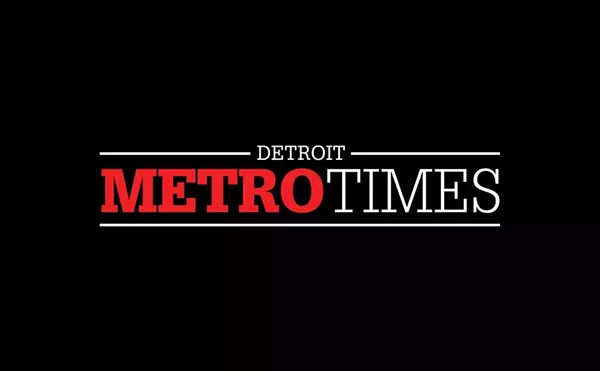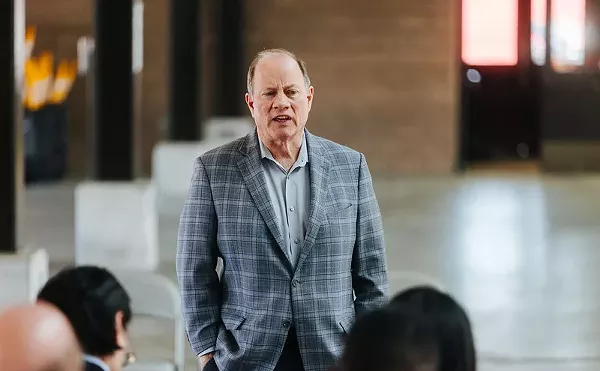Businessman Joel Haashiim announces mayoral candidacy, vows to serve all of Detroit
‘Somebody has to stand up and do the right thing for the people of Detroit,’ the 73-year-old says
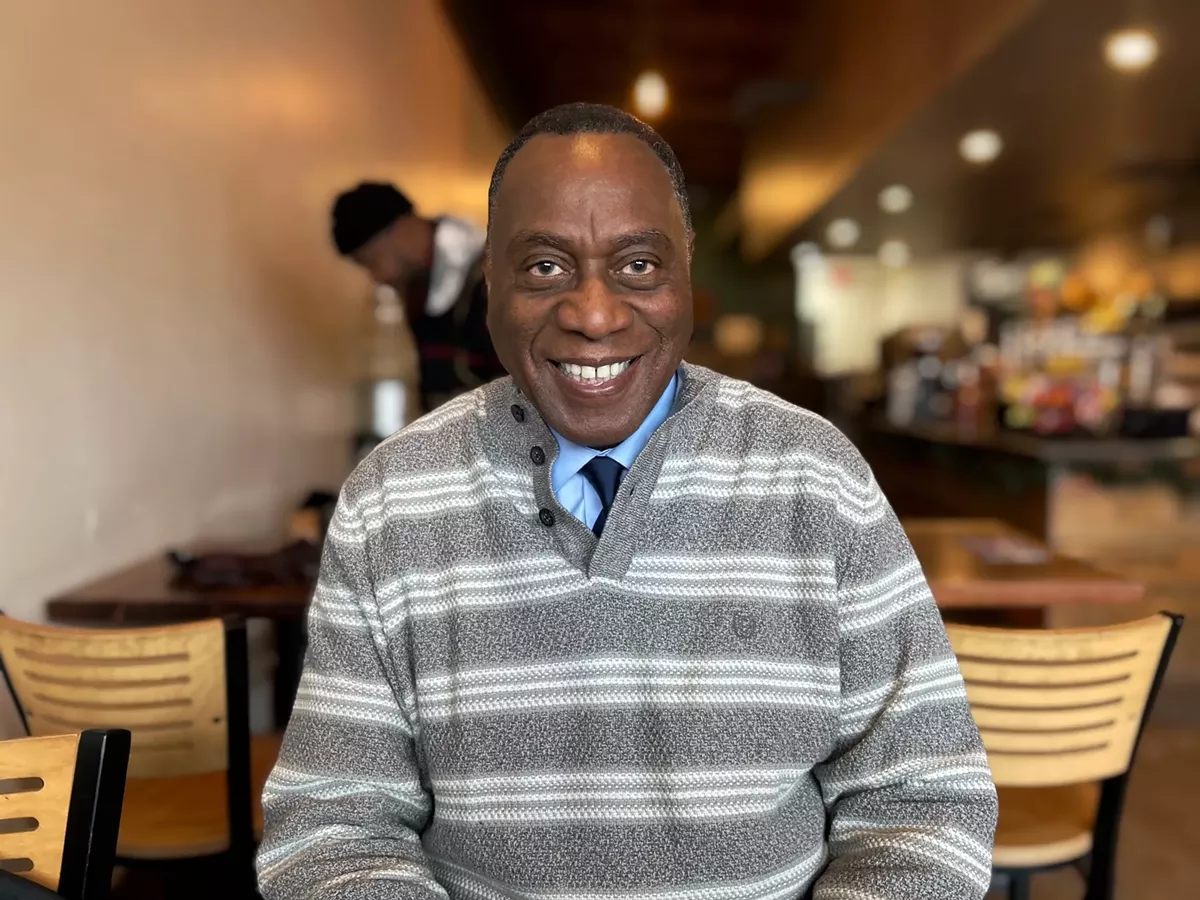

Audio By Carbonatix
[
{
"name": "GPT - Leaderboard - Inline - Content",
"component": "35519556",
"insertPoint": "5th",
"startingPoint": "3",
"requiredCountToDisplay": "3",
"maxInsertions": 100,
"adList": [
{
"adPreset": "LeaderboardInline"
}
]
}
]
Joel Haashiim devoted decades behind the scenes trying to uplift Detroit.
Now that he’s retired, the 73-year-old former businessman is ready for the public spotlight.
Haashiim is running for mayor of Detroit in 2025, and his focus is on residents who have been left behind as areas like downtown and Midtown have rebounded.
With 18 grandchildren living in the city, Haashiim has a personal stake in the city’s future.
While some areas of Detroit are getting fancy new lofts, restaurants, and entertainment venues, most neighborhoods are struggling with poverty, high crime, unreliable public transportation, failing schools, a lack of jobs, and a population drain.
“Somebody has to stand up and do the right thing for the people of Detroit,” Haashiim tells Metro Times during a 90-minute interview at a coffee shop in Detroit. “I don’t think we have enough people in office who are courageous enough to stand up for the people. I think they have decided to represent the corporations and the rich. And obviously they have lost empathy for their communities.”
Haashiim is the second person to announce his candidacy so far. City Council President Mary Sheffield filed her paperwork in August and has already raised more than $80,000.
Mayor Mike Duggan has not yet announced if he plans to run for a fourth term, but some political observers speculate that he’s going to run for governor in 2025.
Haashiim believes Duggan has focused too much on wealthy developers, pointing to the tens of millions of dollars in tax incentives doled out to billionaires like the Ilitch family and Dan Gilbert. Haashiim chuckles at the idea that the incentives trickle down to neighborhoods in need.
“They are practicing Reaganomics on the people, and we will create an economic system from the bottom up and the middle out,” Haashiim says. “Trickle-down economics have never worked for any community.”
A recent poll shows that a vast majority of Detroiters are tired of wealthy developers getting tax handouts.
Haashiim, who ran a party store and later became a wholesaler, touts his experience working on international trade delegations since the 1980s. The city is too reliant on automakers, Haashiim says, and the key to creating new, good-paying jobs lies in international companies opening up in Detroit.
“I do have the necessary knowledge and information to bring in international companies,” Haashiim says.
With the decline of the auto industry, it has become exceedingly difficult for Detroiters to find jobs that pay well, prompting many residents to leave the city.
Since 2000, Detroit has lost about 295,000 Black residents, or 37.4% of its African American population. No other American city has lost more Black residents.
While Detroit’s white population declined by 44,300 between 2000 and 2010, it has since grown by more than 5,100. Its Hispanic and Asian populations have also grown.
Black people now account for 77.2% of the city’s overall population, compared to 82.2% in 2010, when Detroit had the highest percentage of Black residents in the country.
Many Detroiters are moving to Georgia, where Haashiim says 1,500 international companies are located.
“We don’t see much of a future with corporate America if our children can’t compete,” Haashiim says. “We need to bring in other sources to have a diverse economy, and we need to bring in international companies.”
Haashiim says Detroit’s leadership has lacked imagination and forethought.
“When you don’t have visionaries in leadership, this is what we get,” Haashiim says. “Every time there is a problem, our leaders take from the taxpayers. They don’t look for alternative ways to bring in revenue.”
For the past decade, Haashiim has been calling for the creation of a city-run bank, which could finance the construction of low-income housing, support small businesses, and provide low-interest financing and investments in projects with social benefits.
Cities across the country are beginning to push for the creation of government-owned banks as an alternative to the destructive practices of Wall Street financial institutions.
“It would be a solution to at least 90% of Detroit’s financial issues,” Haashiim says. “Our problem is finding resources to uplift our community.”
Small businesses are the engine of a strong local economy, Haashiim says, and that means “promoting and supporting female, Black, and brown Detroiters.”
“We understand that money has to circulate in the community,” Haashiim says. “Small businesses are the largest employers. We have to empower those businesses in the city of Detroit.”
Haashiim also wants to correct what he sees as injustices against retired city employees who have lost their pensions during the municipal bankruptcy and property owners who have been illegally overtaxed.
“The city should compensate them,” Haashiim says. “That’s something we must address. I have a plan for that.”
Haashiim knows he doesn’t have the name recognition of many politicians in Detroit. But, he says, that doesn’t mean he hasn’t always been fighting for the city or lacks the skills to be an effective, compassionate leader.
“I always liked working behind the scenes,” Haashiim says. “People ask where I’ve been. I’ve been working behind the scenes with a lot of groups and organizations. I wasn’t in front of cameras and microphones. But I have the skills to bring back Detroit and make it a great international city and improve the quality of life for our residents. I think it would be unfair to the city if I didn’t present myself.”
Subscribe to Metro Times newsletters.
Follow us: Google News | NewsBreak | Reddit | Instagram | Facebook | Twitter


